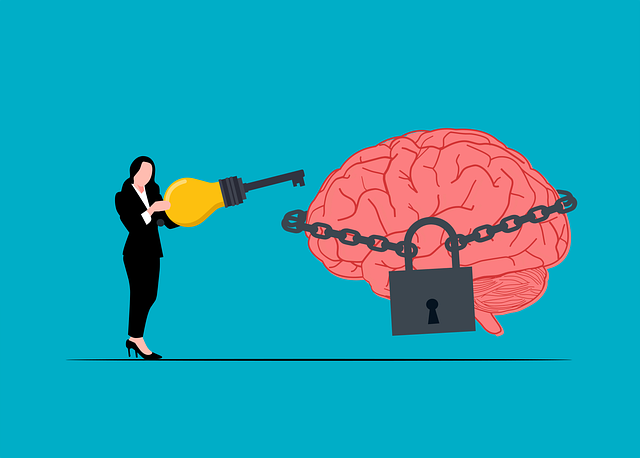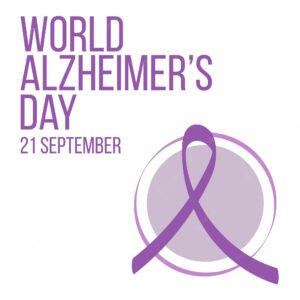
Image Source: FreeImages
## Introduction to Obsessive Compulsive Personality Disorder (OCPD) and Obsessive Compulsive Disorder (OCD)
Obsessive Compulsive Personality Disorder (OCPD) and Obsessive Compulsive Disorder (OCD) are two mental health conditions that are often misunderstood and confused with each other. While they share similarities in terms of obsessions and compulsions, they are distinct disorders with different diagnostic criteria and treatment approaches. In this article, we will delve into the key differences between OCPD and OCD, helping you gain a better understanding of these conditions.
Understanding Obsessive Compulsive Personality Disorder (OCPD)
Obsessive Compulsive Personality Disorder (OCPD) is a personality disorder characterized by a pervasive pattern of preoccupation with orderliness, perfectionism, and control. Individuals with OCPD tend to have an excessive need for organization and rigid adherence to rules and regulations. They may also be overly cautious, inflexible, and have difficulties delegating tasks to others. Unlike OCD, which primarily focuses on obsessions and compulsions, OCPD involves deeply ingrained personality traits that impact various aspects of an individual’s life.
Symptoms and Diagnostic Criteria for Obsessive Compulsive Personality Disorder (OCPD)
To be diagnosed with Obsessive Compulsive Personality Disorder (OCPD), an individual must meet specific diagnostic criteria outlined in the DSM-5. These criteria include a pervasive pattern of perfectionism, preoccupation with details, mental and interpersonal control, excessive devotion to work, reluctance to delegate tasks, rigid adherence to rules, and a sense of righteousness. Individuals with OCPD may struggle with relationships due to their need for control and may experience significant distress if their need for orderliness and perfectionism is not met.
Exploring Obsessive Compulsive Disorder (OCD)
Obsessive Compulsive Disorder (OCD) is a chronic mental health condition characterized by intrusive thoughts, urges, or images (obsessions) that lead to repetitive behaviors or mental acts (compulsions). OCD can significantly impact an individual’s daily life, causing distress and interfering with their ability to function. Common obsessions include fears of contamination, doubts about safety, or intrusive thoughts of harming oneself or others. Compulsions, on the other hand, are behaviors or mental acts performed to alleviate anxiety or prevent a feared event from occurring.
Symptoms and Diagnostic Criteria for Obsessive Compulsive Disorder (OCD)
To be diagnosed with Obsessive Compulsive Disorder (OCD), an individual must meet specific diagnostic criteria outlined in the DSM-5. These criteria include the presence of obsessions, compulsions, or both that are time-consuming (taking more than one hour per day) or cause significant distress or impairment in functioning. Additionally, the obsessions and compulsions must not be better explained by another mental disorder. OCD can manifest in various ways, and the specific obsessions and compulsions can differ greatly between individuals.
Key Differences Between Obsessive Compulsive Personality Disorder (OCPD) and Obsessive Compulsive Disorder (OCD)
While both OCPD and OCD involve obsessions and compulsions, there are key differences that set them apart. OCPD is a personality disorder characterized by a pervasive pattern of perfectionism, preoccupation with details, and a need for control. It is deeply ingrained in an individual’s personality and affects multiple areas of their life. OCD, on the other hand, is an anxiety disorder characterized by intrusive thoughts and repetitive behaviors or mental acts that are performed to alleviate anxiety. The obsessions and compulsions in OCD are typically unrelated to perfectionism and control.
OCD vs OCPD: Treatment Approaches and Medications
The treatment approaches for OCD and OCPD differ due to the nature of the disorders. OCD is often treated with a combination of cognitive-behavioral therapy (CBT) and medication. CBT aims to help individuals identify and challenge their irrational thoughts and develop healthier coping mechanisms. Medications such as selective serotonin reuptake inhibitors (SSRIs) can also be prescribed to help manage the symptoms of OCD. OCPD, on the other hand, is primarily treated through therapy, particularly cognitive therapy, which focuses on challenging maladaptive thinking patterns and promoting flexibility.
Living with OCD or OCPD: Coping Strategies and Support
Living with OCD or OCPD can be challenging, but there are coping strategies and support available. For individuals with OCD, practicing relaxation techniques, engaging in regular exercise, and seeking support from OCD support groups can be helpful. It is also crucial to have a strong support system of friends and family who can provide understanding and encouragement. Individuals with OCPD can benefit from therapy to address their perfectionistic tendencies and learn healthier ways to manage their need for control. Building a support network and engaging in stress-reducing activities can also be beneficial.
Recognizing the Importance of Proper Diagnosis and Treatment
Proper diagnosis and treatment are essential for individuals with OCPD and OCD to lead fulfilling lives. It is crucial to consult with a mental health professional who can accurately assess the symptoms and provide an appropriate diagnosis. Each disorder requires a tailored treatment approach, and early intervention can significantly improve outcomes. By recognizing the differences between OCPD and OCD and seeking professional help, individuals can receive the support they need to manage their symptoms and improve their overall well-being.
Conclusion: Raising Awareness and Seeking Help for OCD and OCPD
In conclusion, understanding the differences between Obsessive Compulsive Personality Disorder (OCPD) and Obsessive Compulsive Disorder (OCD) is crucial for proper diagnosis and treatment. While both conditions involve obsessions and compulsions, OCPD is a personality disorder characterized by perfectionism and a need for control, while OCD is an anxiety disorder characterized by intrusive thoughts and repetitive behaviors. By raising awareness about these disorders and seeking professional help, individuals can receive the necessary support to manage their symptoms and lead fulfilling lives.
If you or someone you know is struggling with symptoms of OCPD or OCD, don’t hesitate to reach out to a mental health professional for assistance. Remember, early intervention and proper treatment can make a significant difference in managing these conditions.



